RACIST Hollywood Has Damaged ALL Ethnicities; Cabal Entertainment By Cabal OWNED Celebrities
Racist Hollywood is run by Racist Jews. You don’t get to A List status unless you are Jewish or Married to a Jew and adopt their attitudes and vicious Racist Religion. Brutalproof.net admin does not watch Hollywood Crap.
The Truth About Sacheen Littlefeather’s Oscars Controversy
Valerie Macon/Getty Images
BY TANVI AKHAURI/UPDATED: AUG. 17, 2022 4:35 PM EDT
In what is widely regarded as one of the greatest Hollywood protests of all time, Native American actor Sacheen Littlefeather took to the Oscars stage in 1973 to reject Marlon Brando’s award for his crowning classic, “The Godfather.” Brando, who boycotted American cinema’s biggest awards night, sent Littlefeather to turn down the honor on his behalf. The film that sealed the infallibility of Brando’s career simultaneously ended Littlefeather’s (via Deadline).
Littlefeather’s now-iconic appearance, which included a minute-long speech on justice for Native American communities, evoked attacks against her on a night that racism infamously and blatantly reared its ugly head in Hollywood. Now, almost a half-century after the controversy, the Academy has issued a long-overdue apology to Littlefeather.
Calling the abuse she faced “unwarranted and unjustified,” the Academy, in a statement dated June 2022, called for reconciliation with Littlefeather. “You are forever respectfully engrained in our history.” A follow-up special event organized by the Academy Museum of Motion Pictures in September of the same year will honor Littlefeather. The actor said she was heartened to see the change that has come to pass in the film industry in the years following her historic stance: “We Indians are very patient people — it’s only been 50 years!” she joked (via Independent). Let’s take a look back into the past, at the events that led up to and what really transpired on that pivotal Oscars night.
Sacheen Littlefeather was no stranger to racism
Michael Ochs Archives/Getty Images
Sacheen Littlefeather’s childhood was far from easy. Born to a white mother and an Apache-Yaqui father in Salinas, California, Littlefeather was soon packed off to live with her grandparents. “I was a child who was abused and neglected,” she told The Guardian, claiming her parents were mentally ill and unable to raise her. ” I was taken away from them at age three, suffering from tuberculosis of the lungs,” Littlefeather explained. “I lived in an oxygen tent at the hospital, which kept me alive.”
She has recalled her father as being an alcoholic around whom she preferred to remain tight-lipped, lest he got violent (via Native Times). Her mother, on the other hand, was more of a “free spirit” hemmed in by domestic violence. “It wasn’t a very happy time. I had too much on my mind,” she said. During her teens, she also attempted suicide, as she told The Guardian.
On one of her travels with her mother through the South, Littleweather came face to face with some of her earliest encounters with racism. “My mom used one restroom and I had to use the other,” she said. As a “mixed race” girl, she was made to use bathrooms and drinking water reserved for Black people in places like Mississippi (via LAist). In school, too, derogatory abuses were hurled at her. At a very young age, Littlefeather was made aware of differential treatment based solely on race: “Not only as an Indian person. But with all people of color” (via LAist). These experiences laid the groundwork for Littlefeather’s lifelong tryst with activism that gave voice to the Native American plight.
If you or anyone you know is having suicidal thoughts, please call the National Suicide Prevention Lifeline by dialing 988 or by calling 1-800-273-TALK (8255).
She became an activist for Native American rights
Valerie Macon/Getty Images
As a young woman, Sacheen Littlefeather balanced life both as an actor and activist. After enduring a childhood of being raised “as a white person,” Littlefeather familiarized herself with her tribal culture, engaging with Native protests and community elders (via KQED). “I really had a breakthrough, with other urban Indian people, getting back into our traditions, our heritage,” she told The Guardian. She even took part in the agitation at Alcatraz in the early 1970s and began visiting the San Francisco Indian Center (via Native Times). Her inclination for the arts as a young girl — which found outlet through poetry — came through in full glory when Littlefeather joined the American Conservatory Theater, which ultimately opened the doors for her in television.
But it wasn’t all rosy as a Native woman looking for a break in Hollywood. “The movie industry basically looked like a Clorox factory. I mean, it was so white,” Littlefeather told LAist. She told Native Times that she landed roles in Italian films — like “Il consigliori” as they liked her “exotic” appearance.
Following the 1973 Oscars, when work whittled down for Littlefeather, she returned to education for a degree in health, with a focus on Native American medicine. In conjunction with activism, she worked for years as a health advisor to indigenous communities.
She came in contact with Marlon Brando after writing him a letter
Michael Ochs Archives/Getty
Hollywood godfather Marlon Brando was a vocal advocate of Native American rights and representation — not the easiest stand to take, given that the American film industry of the 20th century was reaping big success with Western classic films that heavily stereotyped Native American communities (via Time). It was through his unrelenting participation in the cause of Native Americans that Brando and Sacheen Littlefeather first crossed paths in the early 1970s.
Littlefeather, then a 20-something college student, was one of many Native activists to protest at the Alcatraz Island — a landmark resistance that continued for 18 months, reported The New York Times. Born Marie Cruz, it was at Alcatraz that she got the nickname Sacheen (meaning “little bear” in Navajo), which ultimately stuck (per Native Times). Brando was one of the few Hollywood heavyweights to visit Alcatraz to express solidarity with the activists.
Littlefeather lived in San Francisco, where her neighbor was Brando’s friend and “The Godfather” director Francis Ford Coppola, according to The Guardian. Through Coppola, she got Brando’s address and posted him a letter: “I wanted to know if he was for real,” she said. It took months, but Brando soon made contact with her. When she picked up his call, Littlefeather quipped, “You beat ‘Indian time’ all to hell,” laying the grounds for a friendship that would endure years and together create one of the most unforgettable Oscar moments.
Sacheen Littlefeather refused Brando’s Oscar for The Godfather on his behalf
“I’m representing Marlon Brando this evening and he has asked me to tell you … that he very regretfully cannot accept this very generous award.” When Sacheen Littlefeather took to the podium on March 27, 1973 at the Dorothy Chandler Pavilion in Los Angeles during the 45th Academy Awards and said these words, history was written. For one, she became the first-ever Native woman to grace the Oscars stage, as noted by the Academy itself in a statement made almost 50 years after the incident. Secondly, in hindsight, it seems inconceivable to think that Brando would have turned down an award for his seismic role as Vito Corleone in “The Godfather.”
When Brando’s name was announced for Best Actor by presenters Liv Ullmann and Roger Moore, Littlefeather walked up to the stage amid applause and — in an unprecedented move — gestured to decline the Oscar statuette as the audience fell silent. “I had promised Marlon that I would not touch that statue if he won,” she later told The Guardian. While she did not interact with the award, she did take the podium and elaborated on the reasons for Brando’s act of protest in her 60-second speech, calling attention to “the treatment of American Indians” by Hollywood and also the Wounded Knee protest of 1973 led by Native Americans. It was reportedly the first time the Oscars platform was used to make a sharp political statement.
Actor John Wayne apparently got violent while listening to Littlefeather’s speech
Avalon/Getty Images
Sacheen Littlefeather risked a lot when she proxied for Marlon Brando at the 1973 Oscars. While her film career subsequently floundered after her speech, she maintains that there were dangers more imminent that night. Western genre veteran John Wayne was in the wings and apparently “attempted to assault” Littlefeather, as the activist told LAist. “He had to be restrained by six security men.” The late star, who had become synonymous with cowboy films like “The Searchers,” which showed Native Americans as the adversary, didn’t take kindly to Littlefeather’s speech. He was “furious with Marlon and furious with me,” Littlefeather told the BBC in 2020.
But he was not the only actor to react to the speech. Clint Eastwood, Wayne’s fellow Western grandmaster, took a jab at Littlefeather when he came on stage to present the Oscar for Best Picture. “I don’t know if I should present this award on behalf of all the cowboys shot in all the John Ford westerns over the years,” he said (per The Guardian). Brando, in a rare comment about the controversy, said on Dick Cavett’s show in 1973 that the response Littlefeather got on Oscars night “distressed” him and that “they should have at least had the courtesy to listen to her. I think she did very well.” Following the Academy’s apology in 2022, Littlefeather joked that her late husband probably had a talk with Wayne on the other side (via The Hollywood Reporter).
She was heckled and threatened with arrest the night she gave her speech
Valerie Macon/Getty Images
Hollywood’s reaction to Sacheen Littlefeather was less than kind. Aside from being booed when she took the stage, she was reportedly also pummeled with racist language for the speech she delivered on behalf of Marlon Brando. Her minute-long speech was interrupted by jeers from the audience, prompting 26-year-old Littlefeather to stop and say, “Excuse me.” Some applause followed; however, backstage, Littlefeather was met with far more hostile feedback.
The Hollywood Reporter noted that some people present that night heckled her, using ululations and offensive signage. Ululation, a sound common among many indigenous communities, has long been a stereotype employed by mainstream cinema to represent Native Americans, per the literary journal Folio. Attendees also reportedly flashed the “tomahawk chop” gesture at Littlefeather (via The Hollywood Reporter). Crystal Echo Hawk, a member of the Pawnee Nation of Oklahoma, told CNN have recognized that this motion is “dehumanizing” to the community.
Littlefeather later revealed that she was also threatened with arrest that fateful Oscars night. Marlon Brando, whom she represented, had penned a lengthy acceptance speech to be read out from the podium, but the show’s producer Howard Koch warned Littlefeather to wrap her statement up in one minute, or else she would be arrested and sued. “I saw the police officers waiting in the wings to take me in handcuffs off the stage,” she said (via LAist). She was ultimately led away by two security guards (via KQED).
Why Littlefeather attended the Oscars in her traditional buckskin dress
Oscars/YouTube
Marlon Brando and Sacheen Littlefeather’s legendary 1973 Oscars stratagem came about in a matter of a few hours. While the actor-activist duo had been in touch for some time before the event, Brando asked Littlefeather to attend the ceremony and decline his award for him only a day before the event (via The Wrap). There was little time to put things together — including an outfit. “I am not a person who owns an evening gown. I said, the only thing I have to wear is my powwow dress,” Littlefeather told The Globe and Mail. And so, Marlon Brando agreed that’s what she should wear.
An Apache and Yaqui woman, Littlefeather donned a traditional fringed buckskin dress and moccasins, tying the whole length of her hair into two ponytails. “[Brando] chose my wardrobe for me,” she revealed in an interview with LAist. After her speech, a rumor began spreading that she wasn’t actually a Native Indian and had only dressed up to play the part for publicity (per Vogue). Actor John Wayne, who apparently didn’t hold back on denouncing Littlefeather, said that Brando should have known better than “taking some little unknown girl and dressing her up” in Native American apparel. According to The Guardian, some critics even suggested that she wasn’t who she claimed to be and was of Mexican descent.
The Oscars speech was originally eight pages long
Michael Ochs Archives/Getty Images
Sacheen Littlefeather took to the stage at the 1973 Oscars carrying an eight-page statement from Marlon Brando. Although Littlefeather was prohibited from reading the statement, she tell the audience that she would be glad to share Brando’s “very long speech” with the media after the ceremony. Littleweather hadn’t planned to be at the awards show at all and, only a day before the ceremony, hastily flew to Los Angeles on Brando’s request. In fact, when Brando pitched his rather radical idea to her, Littlefeather didn’t believe him because “he loved to play practical jokes” (via The Globe and Mail).
Brando finished typing his speech at his Mulholland Drive home mere minutes before Littlefeather went on stage, reported The Guardian. The original speech, later republished in full by The New York Times, gave a stirring account of the injustices incurred against Native Americans for 200 years in the United States. “We lied to them, ” he wrote. “We cheated them out of their lands. We starved them into signing fraudulent agreements that we called treaties which we never kept.” The statement mentioned that Brando would rather lend his efforts to the Wounded Knee protest spearheaded by indigenous peoples than attend the Oscars. The concluding lines read, “Thank you for your kindness and your courtesy to Miss Littlefeather. Thank you and good night.”
The Wounded Knee occupation of 1973 was one of the reasons behind Brando’s boycott
Reg Burkett/Getty Images
The mention of the Wounded Knee occupation continues to be one of the most powerful parts of Sacheen Littlefeather’s short yet iconic 1973 Oscars speech. She cited it as one of the reasons behind Marlon Brando’s refusal of his Best Actor award.
Wounded Knee is a hamlet on the Pine Ridge Indian Reservation in South Dakota and has historically been a site of Native American resistance (via Britannica). The first notable event dates back to 1890, when Indigenous people from the Sioux community were massacred by armed American troops. The second involved an occupation at Wounded Knee led by the American Indian Movement in February 1973, which saw opposition from law enforcement authorities and resulted in multiple casualties (via Native Voices). The protest was underway while the Oscars were being announced that year.
“Marlon Brando was an excellent strategist, and he knew that that year, the Academy Awards would be broadcast via satellite, to millions of people all over the world,” Littlefeather told the Los Angeles Times. It would have been an opportune moment to spotlight Wounded Knee, given how the U.S. government had imposed a media blackout on events transpiring at the protest site (per HuffPost). Ever the activist, Brando had long been involved with the Native American cause and committed time away from the cinema to bolster oppressed voices. In the 1960s, for example, he protested alongside Native Americans in Tacoma, Washington for their fishing rights, reported the Seattle Post-Intelligencer.
Sacheen Littlefeather says she was ‘blacklisted’ by Hollywood after the Oscars
Valerie Macon/Getty Images
Sacheen Littlefeather’s tremendous act of courage in 1973 wasn’t without its consequences. Aside from the racist abuse she had to endure, the curtain came down on Littlefeather’s acting career. “I was blacklisted — or, you could say, ‘redlisted’,” she claimed in “Sacheen: Breaking The Silence,” a 2021 documentary about the stance she took half a century ago (via Deadline).
The price Littlefeather paid for speaking up against the unfair treatment of Native Americans brought an effective end to her work as a screen artist. The activist-actor told The Hollywood Reporter that the Federal government forbade platforms from allowing her on air. “When I was at the podium in 1973, I stood there alone,” she said. A friend whom Littlefeather spoke to in the aftermath of the Oscars scandal said their studio was visited by officers from the FBI. “And they told us that if we would ever hire you, they would shut us down,” she was told (via LAist). No less than the FBI director J. Edgar Hoover was involved in imposing a gag on Littlefeather’s voice, she told The Guardian. “I couldn’t get a job to save my life,” she explained.
It wasn’t all in vain though. Littlefeather was apparently contacted by the likes of Coretta King, Martin Luther King Jr.’s wife, who told her she was proud of her (via Native Times). Aside from advocacy, Littlefeather managed to secure work in radio.
Littlefeather ‘never thought’ the Academy would issue an apology
YouTube
“I never thought I’d live to see the day I would be hearing this, experiencing this,” a positively stunned Sacheen Littlefeather said, almost 50 years after she delivered her landmark Oscars protest speech in 1973 (via The Hollywood Reporter). Her surprise stemmed from the formal apology issued to her by the Academy of Motion Picture Arts and Sciences, which hosts the Oscars, recognizing her “powerful statement that continues to remind us of the necessity of respect and the importance of human dignity.”
When she underlined the plight of Native American people back in the ’70s, Littlefeather was practically booed off stage by an audience comprising the who’s who in Hollywood. Come 2022, the premier film organization conveyed in a statement undersigned by its chief David Rubin: “For too long the courage you showed has been unacknowledged. For this, we offer both our deepest apologies and our sincere admiration.” The Academy Museum has welcomed Littlefeather to an evening of “conversation, reflection, healing, and celebration” at an event in September 2022, which will feature Native performers and speakers. With Rubin noting that Littlefeather is “forever respectfully engrained in our history,” the Academy Awards History gallery has also honored her in their display, right next to legendary actor Sidney Poitier (via THR). “I’m in good company here,” Littlefeather remarked.
According to a 2021 interview Littlerfeather gave to The Guardian, the activist is “very, very ill.” “I have metastasised breast cancer — terminal — to my right lung,” she told the publication. Despite her declining health, Littlefeather will participate in a conversation with producer Bird Runningwater.
Read More: https://www.thelist.com/969141/the-truth-about-sacheen-littlefeathers-oscars-controversy/?utm_campaign=clip
tell him I’m Jewish. “
:
Wilson says merry Xmas pic.twitter.com/xXZmCwsD”
Angelina Jolie is a JEWISH spoiled brat.
Note how the directors and producers are all Jewish in Hollywood.
Barbara Walters….JEWISH
https://en.wikipedia.org/wiki/Barbara_Walters
Insulting Interview With a “Goyim” By Jewish Barbara Walters. INSULTING. RUDE QUESTIONS. Think Parton has way more class than Barbara Walters. Sadly Barbara Walters has the typical Jewish Hollywood attitude towards the rest of us SHIKSAS.
shiksa
shĭk′sə
noun
- A non-Jewish girl or woman.
https://youtu.be/dwtzw0s-5BI
| Lisa Kudrow | ||||||||||||||||

|
July 30, 1963 — A question for our Jewish male readers… Who is the hottest Friend?Obviously, we’re hearing a lot of Rachels. A bunch of Monicas. Even a few Chandlers. Hey, we’re an inclusive website. So far, no one has said Phoebe. And that makes a lot of sense; Phoebe, although not Jewish on the show, is played by Lisa Kudrow, who looks so obviously Jewish that us Jewish males tend to stay away (remember: we don’t want women who remind us of our mothers). But what’s interesting, in an informal survey of goyim, a lot of them do find Kudrow attractive. More than that: gorgeous. Hot. Sexy. Yeah, we’re not seeing it either. But here’s a proof of yentappeal if there ever was one. Well, one small problem. We have no idea if Kudrow’s real-life husband, French ad exec Michael Stern, is a Jew. With that name, he just might be… and that just might blow up the whole yentappeal theory. But then again, if Mr. Stern could have his picking of Friends, he might have gone with Rachel as well… Verdict: Jew. |
|||||||||||||||
| Roseanne Barr | ||||||||||||||||
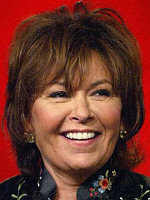
|
November 3, 1952 — Can Jews be trailer trash? Apparently so.So even though she was born Jewish, it’s very hard to imagine Roseanne sitting down for Passover Seder, her head covered with a scarf, sipping on Manischewitz. No, it’s much easier to picture her in a middle of a trailer, popping open a TV dinner, slurping Pabst Blue Ribbon. It gets even more complicated. Yes, her family was Jewish, but somehow, it was involved in Mormonism as well. Then she became both a kaballist and a follower of Jesus Christ. Now she is back to reclaiming her Jewish heritage. |
|||||||||||||||
| Daniel Day-Lewis | ||||||||||||||||
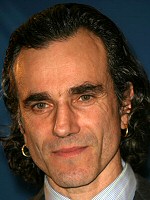
|
April 29, 1957 — By now, you should know there are all kinds of Jews out there.Polish Jews, Spanish Jews, Black Jews, You-name-it-they-exist Jews. Heck, we even knew an Eskimo Jew at one point (no, JONJ searchers, not Sarah Palin). So no one should be surprised by the existence of Irish Jews. But, boy, they’re tough to find. Perhaps it is because, in the Catholic vs. Protestant world of Ireland, being Jewish is like voting Nader. It’s a valid choice, we suppose, but it’s nothing that the rest of the country will understand, let alone embrace. Or maybe it’s Irish cuisine. Having recently visited, we can’t exactly describe the Irish diet as Jew-friendly. Oh, the usual lambs and steaks and salmons are fine enough. But for some reason everything has bacon in it. Breakfast, lunch, dinner, dessert? Bacon, bacon, bacon, bacon. We’re pretty sure we were offered bacon tea at one point. Not exactly an easy place to keep kosher. So it makes sense that while Daniel Day-Lewis is both Jewish and Irish, it is only by descent on both sides (Jewish mother. Born and raised in England.) The cultures are simply too incompatible to be on any closer terms. It’s too bad. With both cultures’ love of corned beef, we could have made one heck of a sandwich. Verdict: Jew. |
|||||||||||||||
| Jerry Seinfeld | 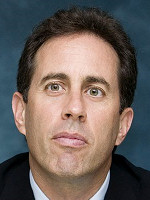
|
April 29, 1954 — What’s the deal with this profile? Surely, this is a high score, but shouldn’t it be even higher? Jerry Seinfeld is Jewish, acts Jewish, and based on previous raves about George Costanza and Larry David, is more than welcome in the tribe. Seriously, what’s the deal?Well, there really is only one thing that keeps Jerry from achieving an even higher score. He’s tried Scientology. The key word here is “tried”, for it looks like that infatuation was a passing fancy, as he quickly turned his back away from the cult. But to give a perfect score to someone who considered Scientology? Even if it was a passing thought? Feh. But without that fling, Jerry is just about a perfect JONJ candidate. Funny, successful, and oh so Jewish. He has even dropped the now-so-very annoying “what’s the deal” routine. Aren’t you glad we brought it back for this website? Verdict: Jew. |
|||||||||||||||||
| Harvey Weinstein | 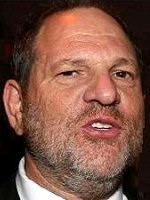
|
March 19, 1952 — Remember when Harvey Weinstein’s biggest crime was getting “Shakespeare in Love” the Best Picture Oscar?You remember “Shakespeare in Love”? The perfectly middling dramedy about… well, Shakespeare. In love! Gwyneth Paltrow was involved. It was up for best picture against “Saving Private Ryan”, a cinematic masterpiece. And yet, Shakespeare somehow won… It won because Weinstein (an angry, aggressive, and insufferable bully), then in charge of Miramax, led a campaign that swept through Hollywood and earned Shakespeare the upset victory. In retrospect, that movie became one of the most absurd Best Picture winners in history. (It’s not “Dances with Wolves” over “Goodfellas”, but it’s up there.) So… remember those days? Today, Weinstein wishes that he was only referred to as “angry, aggressive, and insufferable”. Abhorrent. Appalling. Atrocious. Creepy. Disgusting. Hideous. Horrible. Repugnant. Shameful. “Sadly, a Jew” doesn’t do him justice. Verdict: Sadly, a Jew. |
|||||||||||||||||
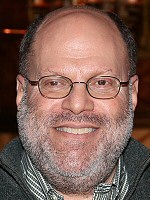
|
July 14, 1958 — Producer Scott Rudin has won the fabled EGOT: an Emmy, a Grammy, an Oscar, and a Tony, so why we’re not kvelling over him? A few reasons, actually…Let’s just say that Rudin is not exactly the nicest Hollywood fellow. No, he is not Harvey Weinstein (as far as we know); in fact, he and Weinstein have a long-standing feud. But he doesn’t exactly treat people well… especially his assistants, going through dozens every year. From verbal assaults to throwing things at them to pushing an assistant out of a moving car… There are just too many to list, so let’s just limit ourselves to a small subset of reasons for Rudin firing people:
Verdict: Sadly, a Jew. |
||||||||||||||||
| Barbara Walters | ||||||||||||||||
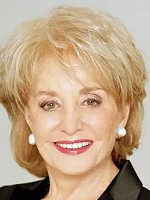
|
September 25, 1929 — Barbara Walters. Media icon. Television pioneer. Senator’s paramour. We were lucky enough to have her sit down with us for a small, entirely fictional, chat.JONJ: Barbara, we were surprised to find out that you were Jewish. Well, my pawents wewe Jewish, but my fathew left the weligion and became an atheist. We nevew celebwated the holidays, nevew went to a Passovew sedew. JONJ: So, do you consider yourself a Jew? I do. JONJ: If you were a tree, what kind would you be? You know, I nevew asked that question. When Kathawine Hepbuwn said she would like to be a twee, what I asked was… JONJ: Sure, we believe you. That said, if you were a tree, what kind would you be? … a sibewian fiw. Verdict: Jew. |
|||||||||||||||
Beastie Boys Are Jewish
Well, we’ll be the first to admit it: we blew it. Because mensches and mamales, we forgot all about the Beastie Boys.
In every way we could have wished — talented, popular, controversial — the Beasties make the grade. And boy oh boy are these boys Jewish. Oh, sure, you’re not gonna bump into one of them at oneg, but otherwise these are no-doubters.
We’re just sorry we didn’t notice them until now.
No! Sleep! Till Temple!!!
Verdict: Jew.
| Jake Gyllenhaal | 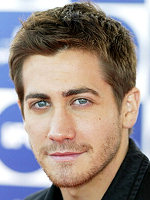
|
December 19, 1980 — Back in the late 80s, a groundbreaking computer game was made. It was called “Prince of Persia”, and it was the first game to feature fluid, lifelike player movement. The titular character had to run through a palace, jump on ledges, kill guards, and — of course — save the princess. Oh, and it was G-d-damn impossible to beat.Years passed, sequels were made, some good, some not. And then, some Hollywood executive decided that the game needed to be made into a blockbuster movie. A long search was made to find the perfect prince. Finally, they settled on… Jake Gyllenhaal! Let’s think of that for a moment. Starring as the Prince of PERSIA… Jake Gyllenhaal! Jew! Yeah, we don’t see this particular movie working out… Verdict: Jew. |
|||||||||||||||||
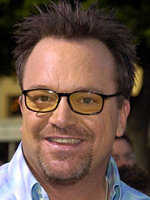
|
March 6, 1959 — Dear Jews,Were you planning to marry a gentile? And if so, were you planning on bringing him or her over to our side? It seems like a good idea, no? It often does. One exception: Roseanne bringing Tom Arnold into the fold. The marriage is long over, but he remains a Jew. We didn’t need another bad Jewish actor. We definitely didn’t need another Jewish comedian. Another Jewish fat man? No thank you, we’ll pass. Unfortunately for her, Roseanne didn’t. Verdict: Sadly, a Jew. |
||||||||||||||||
| Kate Capshaw | 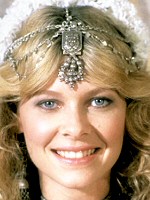
|
November 3, 1953 — At Jew or Not Jew, we love the Indiana Jones movies. We love them so much that we can’t wait for the now-ancient Harrison Ford to reclaim his role in the still untitled Indy 4, even if the film ends up being a comparable disaster. We mean… Indiana Jones! How bad can it be?But right now, there is no Indy 4, so we are stuck with the first three, which we can’t help but watch every time they appear on TV, or popping in a DVD now and again. The films are just that good. Especially “Raiders of the Lost Ark”. Especially “Last Crusade”. “Temple of Doom”? Not so much. Don’t get us wrong, it’s still Indiana Jones, so its rates very highly when comparing to any other film out there. But comparing it to the other two? Well, it suffers. Maybe it’s the lack of Nazis (we hate those guys). But most likely it’s the role of Kate Capshaw as Indy’s leading lady. We loved the so-cute-and-so-tough Karen Allen in “Ark”. We loved the so-blond-yet-so-evil Alison Doody in “Crusade”. (Sorry for the spoiler. But shame on you if it is a spoiler! Watch the movie!) Kate Capshaw? Not so much. Maybe it’s the constant screaming. Maybe it’s the overacting. Maybe it’s the damsel-in-distress that we really, really, don’t care if Indy saves or not. In fact, every time we re-watch the movie, we hope that somehow he doesn’t. Sadly, that never happens. But oh yes, we are writing for Jew or Not Jew here. So Capshaw is Jewish, converting to Judaism for Indy director Steven Spielberg. Perhaps the best thing that came out of that is that she limited her acting and became a stay-at-home mom after the marriage. As for rumors of her making an appearance in Indy 4… We are not holding our breath. Verdict: Jew. |
|||||||||||||||||

| Jew Score: | ||||
| 13 |
JEWISH













